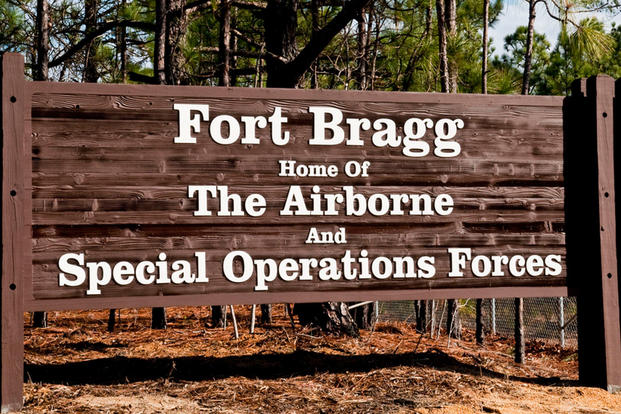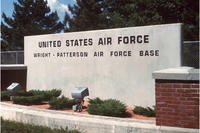Military.com readers responded swiftly and passionately to a recent op-ed by Derek Coy, a former Marine sergeant and Iraq War veteran who, in the wake of racial violence in Charlottesville, Va., argued for changing the names of military bases that honor Confederate military leaders -- men he called "traitors."
There are currently 10 U.S. military installations across the south named after Confederate generals, including Camp Beauregard, La., after Gen. Pierre Gustave Toutant Beauregard; Fort Benning, Ga., after Brig. Gen. Henry Benning; Fort Bragg, N.C., after Gen. Braxton Bragg; Fort Gordon, Ga., after Gen. John Brown Gordon; Fort A.P. Hill, Va., after Lt. Gen. A.P. Hill; Fort Hood, Texas, after Gen. John Bell Hood; Fort Lee, Va., after Gen. Robert E. Lee; Fort Pickett, Va., after Maj. Gen. George Pickett; Fort Polk, La., after Lt. Gen. Leonidas Polk; and Fort Rucker, Ala., after Col. Edmund Rucker.
In addition, several naval ships throughout history have been named after the Confederacy, including one still in commission: the guided-missile cruiser USS Chancellorsville (CG 62). The vessel honors the 1863 Battle of Chancellorsville, a major battle of the Civil War and one of Gen. Robert E. Lee's greatest victories.
While Lee himself discouraged the creation of monuments in part because they "keep open the sores of war," others have argued for keeping them to honor the history of the nation and sacrifice of its troops. Still others have called for moving them into museums rather than public spaces.
Readers weighed in on the subjects of both Confederate monuments and base names, with many calling for keeping them intact.
Here is a sampling of responses that have been edited for clarity:
'We Are Not Sons and Daughters of Traitors'
Mr. Coy may have a degree in foreign history but knows very little about American and Southern history. He has caused anger and disgust with many southern men and women, and has helped to divide our nation even further. We are not sons and daughters of traitors; we are sons and daughters of American soldiers and sailors who chose to defend their homes and states from a northern aggression.
-- Lloyd Walraven
Neither Side Was Right
For many years, we noted our brave men and women on both sides. We knew some of the reasons for this conflict -- 99 percent of this conflict was economic. Neither side was 100 percent right. We do know our ancestors were fighting from each side. We had family on both sides, in many cases. Let's continue to honor all our fathers what ever side. Please keep the names, statues and prayers for all who died bravely.
-- Paul G. Horton, retired U.S. Army lieutenant colonel
Confederate Troops Were Vets
Before we start an iconoclastic movement against many honorable men who fought for the Confederacy in the Civil War, there are a couple of things people need to remember.
First, as 20th century philosopher George Santayana concluded in his treatise, "The Life of Reason": "Progress, far from consisting in change, depends on retentiveness. When experience is not retained, as among savages, infancy is perpetual. Those who cannot remember the past are condemned to repeat it." English writer Aldous Huxley put it more succinctly: "That men do not learn very much from the lessons of history is the most important of all the lessons of history."
Second, Confederate soldiers, sailors and Marines that fought in the Civil War were made veterans by an Act of Congress in 1957, U.S. Public Law 85-425, Sec. 410, approved 23 May 1958. This made all Confederate Army, Navy and Marine veterans equal to U.S. veterans.
Additionally, under U.S. Public Law 810, approved by the 17th Congress on Feb. 26, 1929, the War Department was directed to erect headstones and recognize Confederate grave sites as U.S. war grave sites.
So, in essence, when you remove a Confederate statue, monument or headstone, you are in fact removing a statue, monument or headstone of a U.S. Veteran!
-- Peter J. Reynierse, retired U.S. Navy commander
Don't Fuel More Hatred and Unrest
I am sad that you chose to reprint such an inflammatory article on Military.com. We do not need a self-appointed critic of the [Confederate States of America] to fuel more hatred and unrest. Shame on you. My mother's ancestors of the 1860s fought for the Union. My father's ancestors lived in Ontario, Canada.
-- Allan J. MacLaren, retired U.S. Air Force colonel
Preserve History, Good and Bad
If you can't understand the significance of these memorials and base names are more than just memorializing the person but rather a reminder of what and why they exist, then you may as well remove the memorials for native Americans. ... Although some may be offended by the memorials, they should look at it as a reminder of what this country is about and where and how we got here. Sometimes tough choices have to be made. Erasing what we did in the past will only lead us to forgetting and repeating these mistakes again. I'm for preservation of history, the good and the bad.
-- Russel Brown
One Nation Again
I don't necessarily condone what is being said and done with the "horror" of the Confederate Flag and monuments around the country just because some people have different feelings to their meaning and what the South stood for in those trying times. I do however feel that enough is enough and, like it or not, it was a huge part of the history of this great nation. It is time to move on and stop trying to alter our past. The one incident that occurred which involved a Confederate flag began to change this country tremendously for the worst.
We have far more important issues to worry about than trying to change our history, such as North Korea and the Middle East. Many citizens had family ancestors that fought in that war over 150 years ago, and no matter which side they stood on, it was still family which shaped our country as it is today. I try and visualize what our nation might be if the South had won. I believe we would be in a lot worse shape than we are now. Let's move on and try and be one nation again ... I submit this as a proud American: one nation under God.
-- Paul Imhof
Learn to Work Together
I was born and raised in the South and watched the segregation of schools and learned to get along with African-Americans. I even served in the Navy for 20 years, and never did I hear anyone complain about this country's terrible war of 1864. Statues and monuments have been around longer than most of us have been living, and schools in the South were named after some of those Confederate generals.
The Civil War wasn't just about slavery, it was also about economics and how the U.S. government wanted to raise taxes on southern plantation owners. Wasn't it the British who wanted more money from our young nation and we rebelled? We were under British rule at the time, so the men who fought in that war were traitors, wouldn't you say?
Our forefathers worked to make a living here in the South as did the ones in the North, and once again politics got this country screwed up. Now, I'm sure they could have worked some kind of arrangement out to collect more taxes and discussed the issue of slavery and tried to resolve it. But the North wanted justification right away, and the South was not going to stand by and let them take away what they had worked for their whole lives.
I do not apologize for what my ancestors did back then. It was part of this great country's history. As horrible as it was, it caused this country to unite. But here lately we are becoming ununited. This country needs to leave things alone and learn to work together and improve our relations, and economy, and our brotherly love for our fellow mankind.
-- Phillip Potts, Navy veteran
-- James Barber can be reached at james.barber@military.com. Follow him on Twitter at @mrjamesbarber.






























